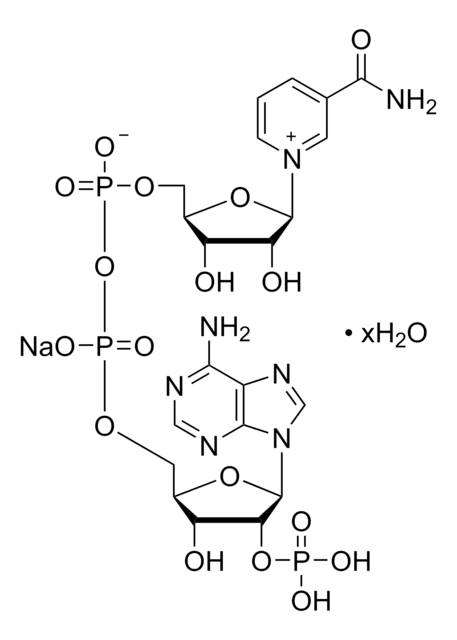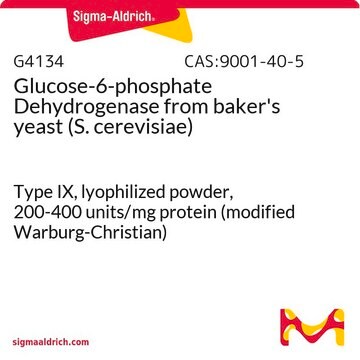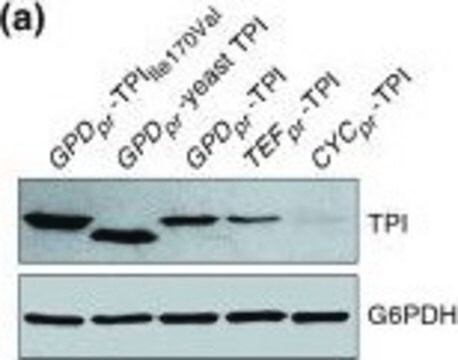G7877
Glucose-6-phosphate Dehydrogenase from baker′s yeast (S. cerevisiae)
Type VII, ammonium sulfate suspension, ≥200 units/mg protein
Synonym(s):
glucose-6-phosphate dehydrogenase (NADP+), G-6-P-DH, Zwischenferment
Select a Size
Select a Size
About This Item
Recommended Products
biological source
bakers yeast
Quality Level
type
Type VII
form
ammonium sulfate suspension
specific activity
≥200 units/mg protein
mol wt
128 kDa
technique(s)
cell based assay: suitable
solubility
water: soluble
application(s)
diagnostic assay manufacturing
storage temp.
2-8°C
Looking for similar products? Visit Product Comparison Guide
Related Categories
General description
Application
Biochem/physiol Actions
Unit Definition
Physical form
signalword
Danger
hcodes
pcodes
Hazard Classifications
Resp. Sens. 1
Storage Class
11 - Combustible Solids
wgk_germany
WGK 3
flash_point_f
Not applicable
flash_point_c
Not applicable
ppe
Eyeshields, Gloves, type N95 (US)
Choose from one of the most recent versions:
Certificates of Analysis (COA)
Don't see the Right Version?
If you require a particular version, you can look up a specific certificate by the Lot or Batch number.
Already Own This Product?
Find documentation for the products that you have recently purchased in the Document Library.
Customers Also Viewed
Articles
Instructions for working with enzymes supplied as ammonium sulfate suspensions
Protocols
To measure glucose-6-phosphate dehydrogenase activity, beta-nicotinamide adenine dinucleotide phosphate is used in a spectrophotometric rate determination assay at 340 nm.
Our team of scientists has experience in all areas of research including Life Science, Material Science, Chemical Synthesis, Chromatography, Analytical and many others.
Contact Technical Service










